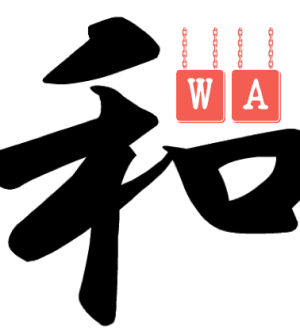- Belgium comes to Yamashita Park
- Residential Villa in Phuket Entices Remote Workers With Long-Stay Rates
- Rare pieces of French glass art at the Mirai Museum of Art
- Feast on fresh fish and seafood at the 2024 ‘Sakana’ Festival
- Would you like to ride in a Louis Vuitton gondola lift?
- Naked Snow Aquarium
- Festive lights at Yomiuriland will get you feeling the holiday vibes
WA

“Wa” is a concept integral to understanding the roots of Japanese culture. Most often translated as “harmony”, the practice of wa in Japanese society involves maintaining peace, unity and conformity within the group.
On many levels, the results of this cultural value are impressive. Despite having more than 4 times the population of Canada living in an area one twentieth the size, the Japanese manage to function with relatively little conflict. Unfortunately, part of this ability to function harmoniously is the result of a strongly ingrained social and business hierarchy that suppresses personal interests in favor of group interests.
The Japanese are not alone in this. Both eastern and western cultures alike achieve harmony – or at least the semblance of it – by subverting conflict, dissent, and original thinking in favor of conforming to the status quo. It is important to note, however, that as individuals we are not the blameless victim. We willingly sacrifice pieces of ourselves for conformity-based harmony because at some level it feels easier, safer, or is more comfortable than the alternative path of rocking the boat.
Thankfully, there is another aspect to harmony that can provide insight into how to achieve harmony that has no downside.
In Japanese, “wa” also reads as “gentleness of spirit”. In English, the definitions of harmony include “a pleasing or congruent arrangement of parts”, “internal calm: tranquility” and “an interweaving of different accounts into a single narrative.” This kind of harmony is about creating a whole that is truly greater than the sum of the parts, not the result of disowning parts of yourself.
The following are some of the keys to developing this type of harmony:
VALUE ALL VOICES.
Recognize the many different voices (both within and without) and understand that each voice matters. In an acapella group, all voices must play their part to create an amazing result. None is more important than any other. When done well, it is often difficult to tell who is doing what. The whole becomes greater than the sum of it’s parts, but each part must have strength on its own for this to happen.
CULTIVATE GROUP PRIDE vs INDIVIDUAL EGO. Western society loves to tell stories of the “lone wolf” who seems to have achieved success completely on their own merit. The reality is that this is simply never true. Every person has been influenced by family, friends and colleagues along the way. Even seemingly negative influences have contributed to your learning, to who you are and what you are able to do today.
TAKE RESPONSIBILITY.
Blame and resentment block harmony, but these cannot exist in the face of radical personal responsibility. You cannot change others or choose how they will treat you, but you can choose how you will react. While it might be difficult initially to control the emotional reactions you have to the people and circumstances in your life, you do have complete control over how you think about these situations and the actions you will take.
CHOOSE KINDNESS.
Choosing kindness in your thoughts and actions, even when you are hurt or angry, will always lead to greater harmony. It will help you to be more patient and compassionate, be a better listener and put your interests aside long enough to think about solutions that will meet the needs of the other person as well as your own.
TAKE CARE OF YOURSELF.
If you are choosing kindness in thought and action, you will naturally be tuned in to the needs and interests of others, but if you forget yourself in the equation, your well is likely to run dry. This is the lesson we can take from airline safety videos – you must put your own air mask on first or you will soon be in no position to help anyone else. Real life has many competing demands and you can’t say yes to everything for the sake of group harmony, without depleting yourself. Get clear about the one or two things you must do to keep your pump primed and your energy flowing.
EMBRACE CONFLICT.
Looking out for your own interests can create conflict, but this does not need to be a bad thing. If we encourage open communication and healthy conflict, individual needs and interests don’t need to be subverted. Once out in the open, conflicts can be discussed and creative solutions found that work for everyone. Just as we need the grain of sand of irritation to make the pearl, we need conflict to create harmony.
LEARN TO FLOW.
Harmony, like life, is not a static state. Seasons change, and change again. Rocks appear in the river. Water levels rise and fall. When you expect change, you develop the abilities to flow around barriers and roll with the punches of a life that is in constant motion.














